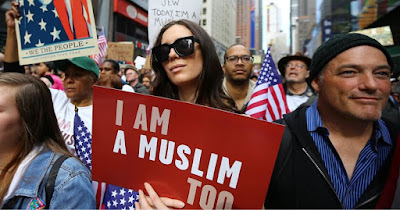The dominating state of extreme political polarization among the American citizens is making it really difficult to predict the results of the upcoming U.S. presidential elections, in November. Here we are a few days apart from the voting day, and reputable public opinion surveyors cannot predict wether Trump or Biden has a higher potential for victory.
However, only one of two scenarios is expected out of this particular election, for the Middle East. Either Trump wins and thus proceed with his current foreign policy agenda in the region, or Biden wins and thus works hard to alter everything Trump’s foreign policy has accomplished. Unfortunately, Biden has not provided any clearly defined agenda on what he plans to do with the Middle East, if he becomes a president. He is only repeating the nostalgic phrases of the Obama era about adopting a new approach towards the Islamic world; except that he lacks the charisma of former president Obama.
It is not a secret that most regimes in the Middle East, excluding Iran, are hoping that the United States President Trump wins the next presidential elections, in November. The pragmatic personal diplomacy approach of the U.S. foreign policy in the region, under the Trump administration, helped all the parties in the region realize a better off status, in the past four years. That is not only true for Arab states, but also, for non-Arabic-speaking counties like Turkey and Israel.
- Egypt got the space and time needed to self-recover from the economic and political failures caused by the Arab Spring and its dire aftermath.
- Gulf states got a chance to firmly stand up against Qatar’s policy of using political Islamist organizations to deliberately inflict harm against its Arab neighbors and target their security and stability.
- Saudi Arabia got relieved from the Iranian threat at its southern borders in Yemen, due to the extreme pressure of U.S. sanctions on the Iranian regime.
- Hizbollah in Lebanon has become much weaker and less influential on local and regional levels.
- Syria and Iraq were partially relieved from the Iran intervention by the killing of the Iranian General Al-Qasimi, and the defeat of the Islamic State (ISIS) terrorist organization.
- Sudan is witnessing a long-waited political change that will eventually benefit, not only the Sudanese people, but also Africa and the Middle East; by putting an end to former regime’s tolerance with terrorism that turned Sudan into a hotbed for African and Middle Eastern terrorists.
- Israel has, finally, been able to claim a better regional status and to get properly integrated in its regional context, thanks to the U.S. sponsored Abraham accords with United Arab Emirates, Bahrain, and Sudan. That is in addition to the unprecedented progress in Israel’s political and security relations with its closest neighbors; Egypt and Jordan.
- Turkey, despite its standing relation with Iran and Russia, and conflicting interests with the U.S, in Syria, has remained a strong ally to the United States, because of the one-on-one deals between Trump and Erdogan. Turkey’s expansionist policy in Middle East, Africa, and the Mediterranean has reached a peak point.
Now, what if Biden wins the elections and becomes the next U.S. President. Can Biden change the Middle East or erase the footsteps of the Trump administration in the region? In other words, would Biden’s foreign policy in the Middle East and North Africa, as defined by the far-leftists of the Democratic Party, threaten the current state of relative and cautious stability in the region? That is highly unlikely. The Middle East we are living in today is much different than the Middle East of 2009, when Obama cam in power, and the Middle East of 2016, when Trump came in power. It is more stable, united, and pragmatic.
- Israeli-Palestinian conflict, with its emotional complicated echoes, is not the central issue in the region, anymore. Israel is more safe in its regional context, today, and this is something that Biden do not need to threaten or disturb.
- The military powers of main regional players, namely Egypt, Israel, and Gulf stats, have grown stronger and smarter than ever before. It is in the best interest of Biden and the American people to enhance strategic and military partnerships with these countries.
- The economic investment by Saudi Arabia and United Arab Emirates in balancing the political powers in the region, played a tremendous role in ensuring stability and countering the harmful effect of the triangle of evil; Turkey, Iran, and Qatar. This newly found state of relative stability is serving U.S. economic and political interests in the Middle East, as well. Biden, if he becomes a president, cannot afford the risk of shaking the well-established economic ties with Saudi and Emirates to please his supporters from the Muslim Brotherhood and their sponsor Qatar.
- Turkey shall always remain a highly important strategic partner to the United States. Turkey is a NATO ally to the U.S. and the owner of the second biggest military in the NATO, after the U.S. Biden’s statements, in a New York Times interview from December 2019, about raising opposition to revolt against Erdogan, is nothing but foolish wishful thinking inspired by the legacies of the Arab Spring. Actual regime change in Turkey is highly unlikely, at least for the near future. Even if Erdogan is removed from power, he will be followed by one of the leading figures in his regime. A recent survey showed that Turkish Minister of Defense Hulusi Akar is the closest to take Erdogan’s seat.
In short, the only option Biden has, in case he becomes the next United States president, is to follow along the footsteps of Trump in the Middle East region. That is if he really wants to serve the interests of the American people and improve their future, rather than satisfying the narrow emotional interests of his Democratic Party and the far left.






